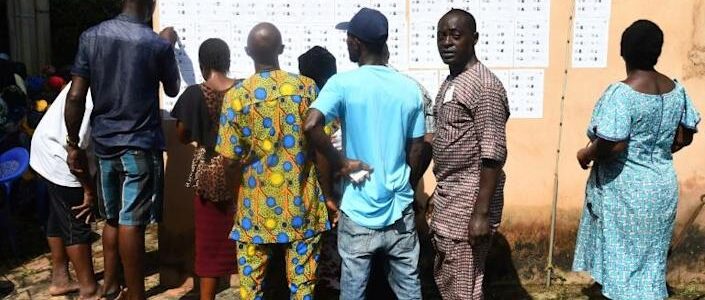
Nigeria’s electoral commission on Monday said security threats had delayed voting in a key district during a state election seen as a major test for the presidential ballot in 2023.
More than 30,000 police and soldiers were dispatched to the southeastern state of Anambra to secure the governorship election on Saturday in a region where separatist militants are blamed for a string of attacks.

The vote is seen as a barometer of trust in electoral authorities’ readiness for the crucial presidential ballot as Nigeria battles widespread insecurity.
Voting in Anambra went ahead mostly without incident despite fears the outlawed Indigenous People of Biafra or IPOB separatist movement planned to disrupt the election.

But the Independent National Electoral Commission or INEC said it would have to conduct voting on Tuesday in Ihiala district, mostly because threats had prevented voting there.
“One major reason for not deploying for election in Ihiala local government area on Saturday… is due to security threats which led to staffing and transportation restraints,” INEC chief returning officer Florence Obi told reporters.
She said INEC would suspend ballot counting and would not make a conclusive announcement about the winner of the Anambra election until voting on Tuesday in Ihiala’s more than 320 polling stations.
IPOB denies it is involved in assaults on police and government offices, but the group which agitates for a separate state for the ethnic Igbo people, has ordered several shutdown protests over the arrest of its leader.
Voting on Saturday was also marred by malfunctions in face and fingerprint recognition technology that forced INEC to extend polling time to compensate for delays.
Local media tallies of INEC results from Saturday’s election showed former central bank director Charles Chukwuma Soludo winning most votes so far ahead of the candidate from President Muhammadu Buhari’s All Progressives Congress party or APC.
Soludo, an economics professor who promised to apply his financial acumen for the state, was running for the All Progressives Grand Alliance or APGA, which has run Anambra for more than a decade and a half.
Anambra is the key bastion for APGA, whose founders included Chukwuemeka “Emeka” Odumegwu-Ojukwu, the Igbo army commander who made the unilateral declaration of independence in the southeast that triggered Nigeria’s 1967 civil war.
But Anambra has also become a key battleground for APC as political jockeying intensifies in the lead up to the February 2023 national vote to replace Buhari, a former army commander who has served two terms.
APC had already won two states in the southeast through defection of one governor to its party ranks and the other through a court ruling.
Separatism is only one security challenge facing Nigeria, Africa’s most popuous ‘s armed forces, who are also battling large criminal gangs responsible for mass kidnappings in the northwest and a long-running war against Islamist militants in the country’s northeast.
Credit: Yahoo News
